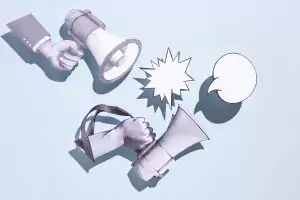
✅ AI Essay Writer ✅ AI Detector ✅ Plagchecker ✅ Paraphraser
✅ Summarizer ✅ Citation Generator
 Have you ever been in a situation when the best piece of writing you’ve ever created was criticized so harshly that you regretted about not keeping it on your desk? Well, this was my first experience of publishing a short story of mine. I thought it was perfect—critics shattered my pink glasses. Throughout my writing career, I’ve faced dozens of situations like that, until I learned how to deal with critique.
Have you ever been in a situation when the best piece of writing you’ve ever created was criticized so harshly that you regretted about not keeping it on your desk? Well, this was my first experience of publishing a short story of mine. I thought it was perfect—critics shattered my pink glasses. Throughout my writing career, I’ve faced dozens of situations like that, until I learned how to deal with critique.
By “dealing with critique” I mean not only feeling neutral about it, but also finding positive moments in being criticized. Critique can be a rather useful thing, but only if you learn to treat it properly. So, here are some of the tips that help me stay afloat under the heavy fire of criticism:
1. Filter it. Not all people who comment on your writing are experts. Moreover, the majority of them have never written a single line (well, except the tortures they had to go through in college, when they had to write essays and term papers). Usually, they sound like, “I could write this myself,” or “My grandma would have written better,” or even like, “Come on, you’re no Ernest Hemingway—you should stop writing.” As you can see, the critique of these type of people have little value. At the same time, even amateurs can provide you with valuable feedback by expressing their emotions and impressions about your writing, and this is valuable material for you. I like it when people write something like, “I like the plot, but your dialogues suck,” or “It lacked descriptions, man.” It’s already something constructive, and should be taken into consideration.
2. Accept the fact of it. Your writing will never cause only awe and positive emotions in your readers. If you never manage to write a book that would garner only positive comments. Hoping to receive positive comments (and evaluating the quality of your writing by their amount) is the same as waiting for likes in social networks. Some people will feel jealous and write mean things about your writing; some will try to troll you for fun; some have no idea about good manners, and will express their impressions in totally negative and devastating ways. It’s inevitable. Think of critique as wind, or rain. It just happens.
3. Learn from it. This is the most obvious point. It’s true that critics are your best teachers—given that they are competent in writing, or they criticize you constructively. Pay attention to what is said most often about your writing—perhaps, you have to work on some of these writing aspects.
4. Don’t fight with critics. It is as meaningless as beating sea waves, or yelling at the wind. If critique is adequate, you will show your intolerance to the opinions of other people. If your critics are trolls or rude people, fighting with them will lead only to the increase in the amounts of negative comments. You may want to thank those critics whose reviews were useful. But you don’t want to reply to those who try to exasperate you.
These rules are simple, but effective. Since you are a writer, critique is an inevitable part of your life. Learn to live with it, and everything is going to be fine.
Follow us on Reddit for more insights and updates.




Comments (0)
Welcome to A*Help comments!
We’re all about debate and discussion at A*Help.
We value the diverse opinions of users, so you may find points of view that you don’t agree with. And that’s cool. However, there are certain things we’re not OK with: attempts to manipulate our data in any way, for example, or the posting of discriminative, offensive, hateful, or disparaging material.